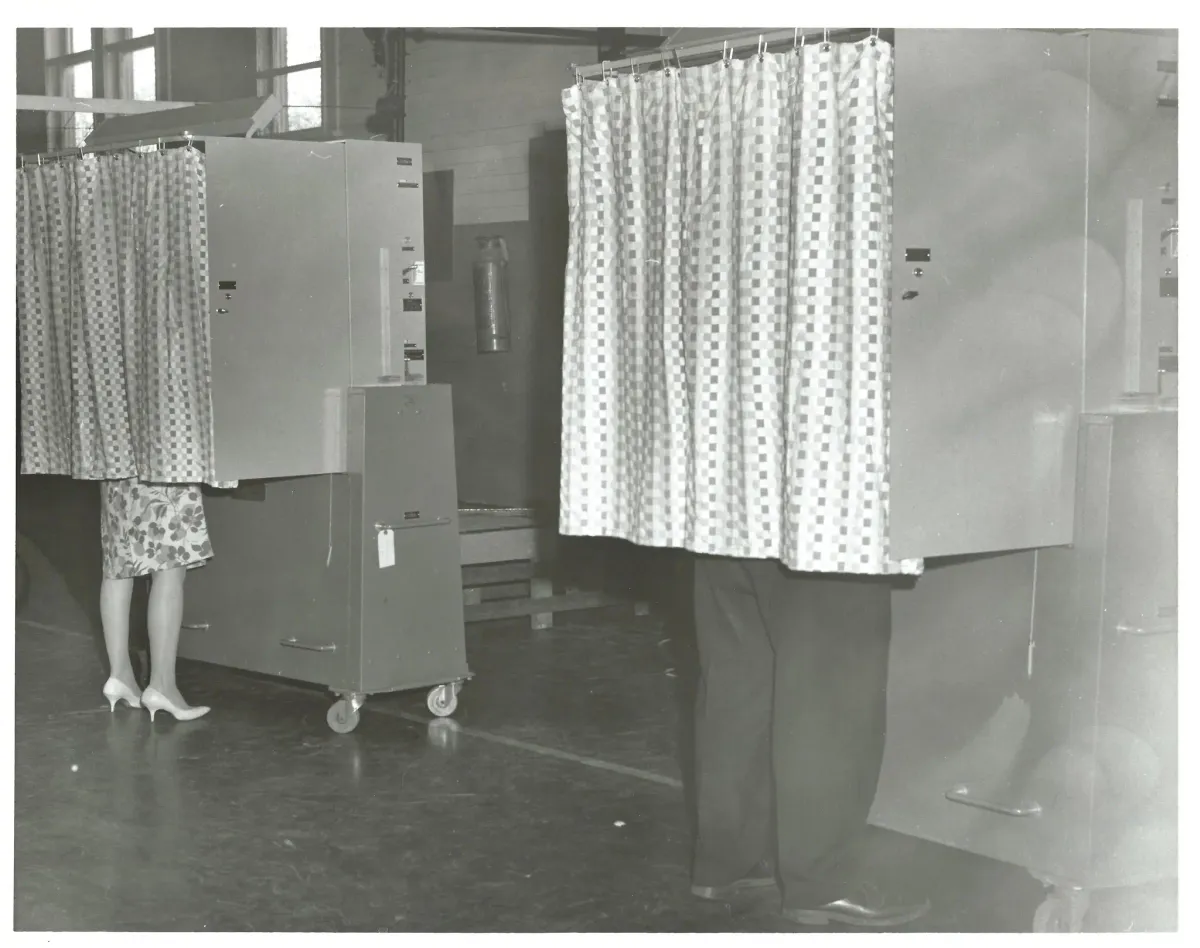Elections and Directions
The indiscriminate electorate

Here in the States, there is a bizarre ritual in many polling locations, whereby, upon voting, you are issued an adhesive sticker which reads “I VOTED TODAY!” You’re supposed to affix this to your clothing, then take a selfie to post online, to proclaim how virtuous you are. It is somewhat analogous to declaring “your” pronouns in your profile or email signature. It does not matter that you have swallowed all the propaganda and voted for the candidate who promises to take your rights away; you have voted, by God,0 and thereby you have “saved ‘democracy,’” or, perhaps, “made ’Murica ‘great’ again.”
The Founders knew—as does anyone who has studied history, even casually—that direct democracy, otherwise known as mob rule, or the “tyranny of the majority,” is dangerous. This is one reason they decided upon a constitutional republic—specifically, a federal republic. Further, they knew that not everyone is automatically capable of thinking clearly enough to make an informed decision about important matters which affect everyone. To that end, they had rules for who could vote and who could not.
The federal republican form of government they chose also meant that voting was indirect; that power was shared among the various branches of government; and that some powers were reserved to the national government, others to the states, and others to the people themselves.
Voters did not elect the president and vice president; rather, each state appointed electors, whose job it was to elect the president, with the runner-up chosen as vice president. In most states, the state legislatures—which had been elected by the people of each state—appointed the electors, as opposed to choosing them based on the popular vote in each state, as is customary today. Another key difference in the way elections were conducted in the beginning is that U.S. senators were not directly elected by popular vote. Instead, they were—like the electors for president and vice president—chosen by the state legislatures.
Taken together, the restriction of voting rights to a select few; the separation of powers among the branches of government; the indirect nature of representative, as opposed to direct, elections; and the allocation of various powers to the federal, state, and local levels, provided multiple layers of protection against tyranny—whether that be the tyranny of the majority; of the minority; or of a single, power-hungry dictator.
Too many of us seem to take for granted today the idea that universal suffrage is somehow an obvious good. Nevertheless, we do not allow children to vote, in large part because it is assumed they do not have the intellectual capacity, nor the requisite knowledge and life experience, to soberly consider the full ramifications of their decisions. Why, then, do we allow people to vote who are unable to think clearly, such as those with profound developmental disabilities, the senile, or the clinically insane? Likewise, why do we allow people to vote who, whether by their own fault or not, are wards of the state, thus essentially putting them in the position of voting themselves a pay raise, while simultaneously not contributing, directly or indirectly, to the seemingly infinite coffers?
The original qualifications for being able to vote in elections were left primarily up to the states themselves. The states, in turn, mostly followed the custom of the earlier British American colonies, which stipulated that only those who owned property—usually meaning land—could vote. The general idea was that property owners had more of a stake in political decision-making, not to mention more skin in the game, financially and otherwise. (It is popular today to assume that only white, male land-owners could vote; while that was largely true owing to the general circumstances of the times, there were exceptions: those women and free black men who owned property were allowed to vote. Only a few colonies specifically excluded voting rights based on race or gender.) As voting rights based on property ownership became less politically popular, other restrictions were put in place. For example, states variously disenfranchised those receiving public assistance, former criminals, recent arrivals to the state, women, and non-whites. (I am intentionally glossing over the details about who could vote when, because it is a much more complex subject than the scope of this article allows; it is an interesting topic in its own right.)
Back to today: it is often assumed that everyone should have the right to vote based solely on being a citizen. Some people promote the idea that non-citizens—even illegal immigrants—should have the right to vote. People are encouraged to register and to vote, regardless of their knowledge of the issues and candidates, and regardless of whether they contribute to (or have contributed to, if they are retirees, military veterans, etc.) the society, in whatever form that may take—financial or otherwise.
I think the idea of universal suffrage is wrong, and it has led us to many of the political problems we find ourselves in today—a sort of universal suffering, as it were. While the idea of restricting voting rights based on race, ethnic background, or gender clearly has no basis in reality, there could, and should, exist other standards for determining one’s fitness to vote. Further, if we were to repeal the Twelfth, Seventeenth, and Twenty-Third Amendments1, we would be making a real start at getting back on track.
(To be very clear: I believe the Fifteenth and Nineteenth Amendments—enshrining the right to vote regardless of race, colour, or gender—are sound, given that they corrected fundamental wrongs. We should abolish the Sixteenth Amendment;2 but that is, while indirectly related to voting rights, also outside the scope of this essay.)
In addition to voting rights reforms, we need to return to the original idea of the United States as a federation of states, each with its own customs, sociopolitical leanings, and other peculiarities. The federal government, including not only the legislative but also the executive and judicial branches, have run roughshod over the rights of the states and of the people for at least the past 150 years, if not more. There is no reason to suppose that the citizens of Utah, New Hampshire, Kentucky, or South Dakota necessarily have the same aspirations, ideals, customs, etc., as those of Alabama, New York, Maine, or Missouri. Further, if the rights of the people, the states, and the federal government were in proper balance, contentious decisions—such as the overturning of Roe v. Wade, or the potential election of figures such as Donald Trump or Kamala Harris—would not be nearly so divisive as they seemingly have become. Why? Because if government were doing its job appropriately, at all levels—instead of trampling all over the rights of citizens, local jurisdictions, and states—then the titular head of the executive branch, or the political makeup of the U.S. Supreme Court or Congress, would matter far less than it does today.
In other words, most of our problems have stemmed from a combination of straying from a principled system of checks and balances—which, however imperfect, was designed to work effectively and fairly—and departing from appropriate limitations on voting rights, such that only people who are of sound mind, and who have skin in the game, are permitted to vote on matters which affect all of us.
This essay is admittedly thin on details; perhaps it is more of an outline of what I believe we should be working toward, politically. While I know not everyone will agree with the points I have made, I am genuinely curious to know what you think. I welcome your comments and ideas.3
- See also “next to of course god”, by E. E. Cummings.
- The Twelfth Amendment stipulates that the president and vice president be elected as a unit, rather than (as before) the vice president being the runner-up. The Seventeenth Amendment provides for the direct election of U.S. senators by the people—rather than by the state legislature—of each state. The Twenty-Third Amendment allows residents of Washington, D.C., to vote in presidential elections.
- The Sixteenth Amendment permits Congress to levy a federal income tax on citizens, without apportionment.
- Comments may be posted directly on The Kermudgeon; or on Facebook or Twitter (X).





 Support Us
Support Us
Comments ()